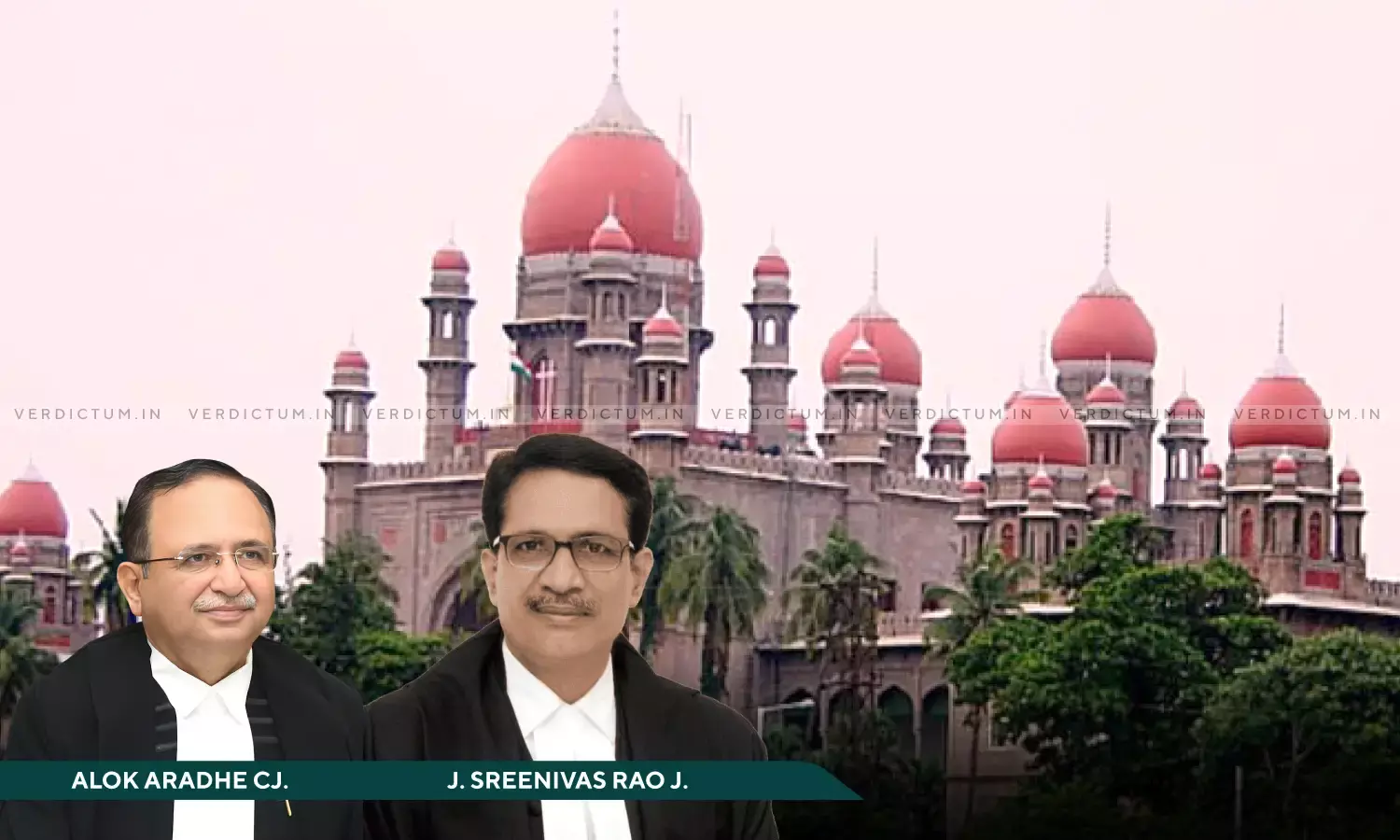Amount Received By Assessee Under Agreement To Not Carry On Competitive Business Is In Nature Of Capital Receipt & Not Liable To Tax: Telangana HC
The Telangana High Court held that the amount received by the Assessee under an Agreement to not carry on a competitive business is in nature of Capital Receipt and not liable to Tax.
The Court held thus in an Income Tax Tribunal Appeal filed under Section 260A of the Income Tax Act, 1961 (ITA) by the Revenue.
A Division Bench of Chief Justice Alok Aradhe and Justice J. Sreenivas Rao observed, “The finding recorded by the Tribunal that the amount received under the agreement is a capital receipt, which has been recorded on the basis of meticulous appreciation of evidence on record. The aforesaid finding cannot be termed as perverse. It is well settled in law that this Court in exercise of powers under Section 260A of the Act cannot interfere with the finding of fact until and unless the same is demonstrated to be perverse.”
Senior Standing Counsel (SSC) J.V. Prasad appeared for the Appellant while Advocates Rohan Aloor and Ch.Pushyam Kiran appeared for the Respondent.
Facts of the Case -
The subject matter of the Appeal was related to the assessment year (A.Y.) 2000-01. The Appeal was admitted on the following substantial question of law –
“Whether the finding of the Income Tax Appellate Tribunal that the amount of Rs.6 crores received by the Assessee under an Agreement with PFIZER Company is a capital receipt not liable to tax as the same is not a revenue receipt exigible to tax, is not erroneous in law for non-considering the relevant facts decided by the Assessing Officer and confirmed by the Appellate Authorities?”
The assessee was engaged in the business of manufacture and sale of Hepatitis-B Vaccine under the trade name “Shanvac-B”. It was equipped with in-house Research and Development team and claimed to be the first company in India to develop the Hepatitis-B Vaccine. In 2000, it entered into a Co-marketing agreement with PFIZER Ltd. Under the said co-marketing agreement, the assessee has agreed to manufacture the Vaccine in bulk quantities for PFIZER Limited and supply the same to it. The said Vaccine was to be promoted, marketed and sold by the PFIZER Limited. The assessee under the co-marketing agreement received a sum of Rs. 6 crores. It filed the return of income for the A.Y. 2000-01 and was served with a notice in 2002 under Section 148 of ITA. A sum of Rs. 6 crores received by the assessee under the co-marketing agreement was treated as revenue receipt.
Being aggrieved, the assessee filed an Appeal and the Commissioner of Income Tax (Appeals) affirmed the Order of assessment and dismissed the Appeal. Thereafter, it approached the ITAT (Income Tax Appellate Tribunal) which held that a sum of Rs. 6 crores received by the assessee was not only for transfer of capital assets but also for waiver of certain rights in enduring nature and for accepting certain restrictive covenants. It further held that the said amount cannot be treated as revenue receipt. Hence, the assessee approached the High Court.
The High Court after hearing the contentions of the counsel, noted, “Thus, the payment of the amount under the agreement has been made to the assessee as it has surrendered its rights in a capital asset, namely patent and trademark. The agreement in question is a negative/ restrictive covenant and the amount has been paid to the assessee in lieu of the rights which it has surrendered under the agreement.”
The Court added that the surrender of the rights results in impairment of profit making apparatus of the company and therefore, is a capital receipt.
“Therefore, the substantial question of law framed by this Court is answered in the negative and in favour of the assessee”, it concluded.
Accordingly, the High Court dismissed the Appeal.
Cause Title- The Commissioner Of Income Tax v. M/s. Satiofi Healthcare India Private Limited




